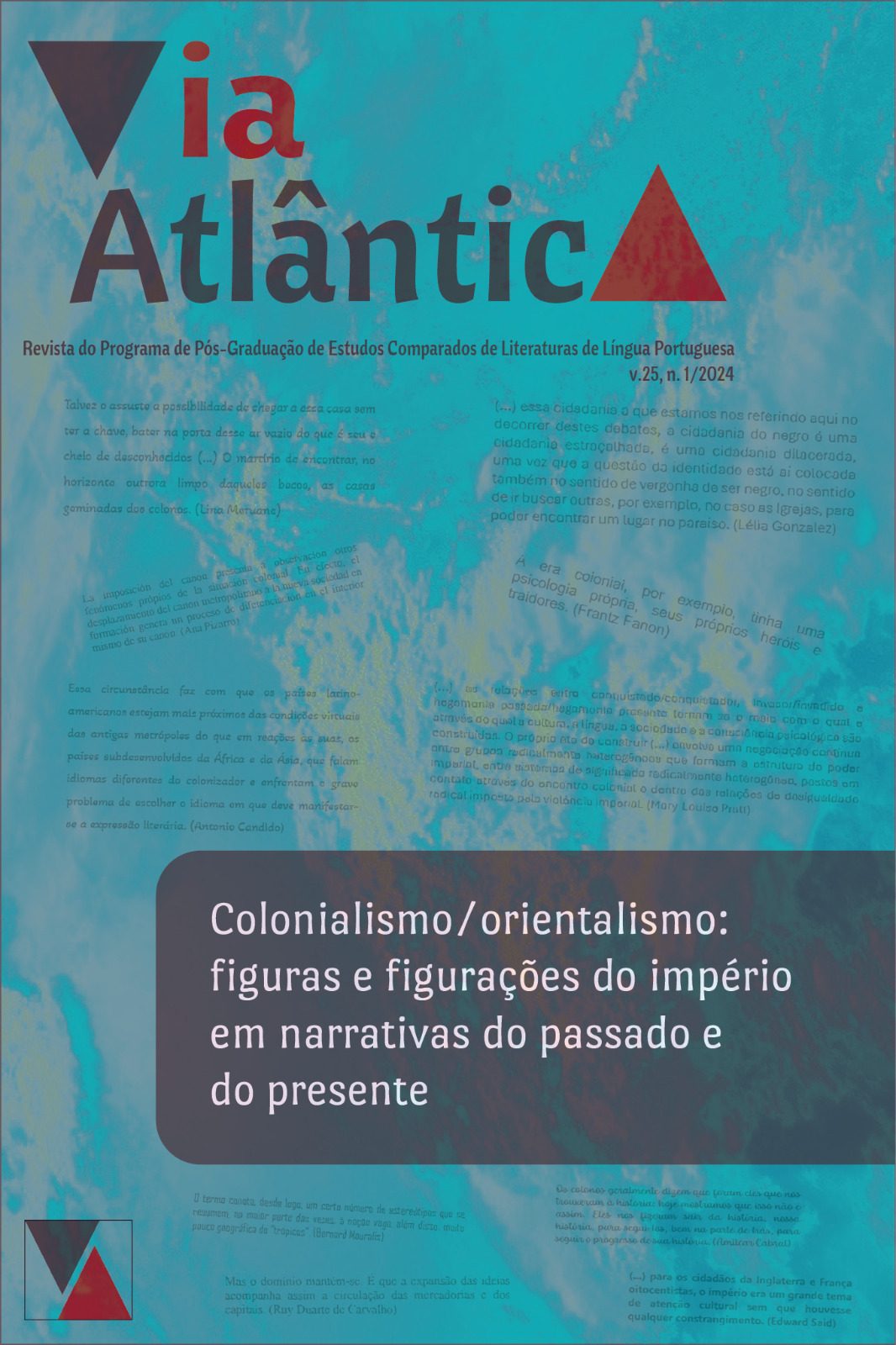Colonial prejudices and decolonization complexes according to Sartre
DOI:
https://doi.org/10.11606/va.i1.199482Keywords:
colonialism, imperialism, prejudice, racism, Jean-Paul SartreAbstract
For Jean-Paul Sartre, the oppressor breaks intersubjective solidarity and transforms the oppressed into an Other, fearing him and making him strange. It’s paradoxical since the colonizer is the one who “creates” the Other based on prejudice. This proposal follows a textual analysis focused on the essence of the colonial prejudice of the oppressor and on the complexes of liberation and independence of the oppressed peoples in the decolonization process. The objectives are: a) to highlight Sartre’s contribution to understanding colonial prejudices and decolonization complexes, as well as the position taken by the author against the war in Algeria and in favour of the colonial liberation movements in Africa; b) substantiate the position of respect for the Other as a fundamental question of an ethics of alterity.
Downloads
References
ARENDT, H. On violence. San Diego, California: Harcourt Brace Jovanovich Publishers, 1970.
BERNASCONI, R. Sartre and Levinas: Philosophers against racism and antisemitism. In JUDAKEN, J. (ed.), Race after Sartre: Antiracism, Africana existentialism, postcolonialism. Albany, New York: SUNY Press, 2008, pp. 113-128.
BERSTEIN, S. & MILZA, P. Histoire du XIXe siècle. Paris: Hatier, 1996.
GIDDENS, A. Sociologia. Lisboa: Fundação Calouste Gulbenkian, 2008.
HOBSBAWM, E. The age of capital: 1848-1875. London: Abacus, 1995.
HOBSON, J. Imperialism: A study. New York: Cosimo Classics, 2005.
JUDAKEN, J. Sartre on racism: From existential phenomenology to globalization and “the new racism”. In JUDAKEN, J. (ed.), Race after Sartre: Antiracism, Africana existentialism, postcolonialism. Albany, New York: SUNY Press, 2008, pp. 23-54.
LENIN, V. Imperialism: The highest stage of capitalism. Broadway NSW: Resistance Books, 1999.
MARCANO, D.-D. Sartre and the social construction of race. In BERNASCONI, R. & COOK, S. (eds.), Race and racism in continental philosophy. Indiana: Indiana University Press, 2003, pp. 214-226.
MARQUES, A., BERUTTI, F. & FARIA, R. História contemporânea através de textos. São Paulo: Contratexto, 1997.
MEMMI, A. Portrait du colonisé. Paris: Payot, 1973.
PRIEST, S. Jean-Paul Sartre: Basic writings. London: Routledge, 2001.
SARTRE, J.-P. Critique de la raison dialectique. Paris: Gallimard, 1968.
SARTRE, J.-P. Anti-Semite and Jew. New York: Schocken Books, 1976.
SARTRE, J.-P. O existencialismo é um humanismo. Lisboa: Editorial Presença, 1978a.
SARTRE, J.-P. Being and nothingness: A phenomenological essay on ontology. New York: Pocket Books, 1978b.
SARTRE, J.-P. Cahiers pour une morale. Paris: Gallimard, 1983.
SARTRE, J.-P. Black Orpheus. In SARTRE, J.-P. What is literature? And other essays. Cambridge: Harvard University Press, 1988, pp. 289-330.
SARTRE, J.-P. From one China to another. In SARTRE, J.-P. Colonialism and neocolonialism. London: Routledge, 2001a, pp. 1-8.
SARTRE, J.-P. Colonialism is a system. In SARTRE, J.-P. Colonialism and neocolonialism. London: Routledge, 2001b, pp. 9-19.
SARTRE, J.-P. Albert Memmi’s the colonizer and the colonized. In SARTRE, J.-P. Colonialism and neocolonialism. London: Routledge, 2001c, pp. 20-23.
SCHUMPETER, J. Sociologia dell’imperialismo. Roma: Editori Laterza, 1972.
Downloads
Published
Issue
Section
License
Copyright (c) 2024 Paulo Barroso

This work is licensed under a Creative Commons Attribution 4.0 International License.
Authors who publish with this journal agree to the following terms:
- Authors retain copyright and grant the journal right of first publication with the work simultaneously licensed under a Creative Commons Attribution License that allows others to share the work with an acknowledgement of the work's authorship and initial publication in this journal.
- Authors are able to enter into separate, additional contractual arrangements for the non-exclusive distribution of the journal's published version of the work (e.g., post it to an institutional repository or publish it in a book), with an acknowledgement of its initial publication in this journal.
- Authors are permitted and encouraged to post their work online (e.g., in institutional repositories or on their website) prior to and during the submission process, as it can lead to productive exchanges, as well as earlier and greater citation of published work (See The Effect of Open Access).



















